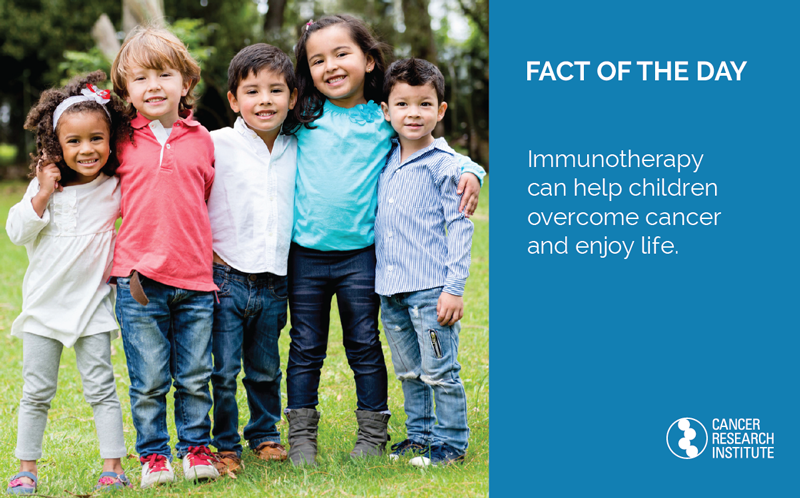
Immunotherapy can help children enjoy longer, healthier lives.
Children have been receiving immunotherapy in the form of bone marrow transplants for decades. More recently, targeted antibodies and checkpoint immunotherapies have shown success against some forms of childhood cancer. Already, dinutuximab has been approved for children with neuroblastoma, while pembrolizumab has been approved for children with Hodgkin lymphoma.
Scientists are exploring how to improve the effectiveness of bone marrow transplants and molecular-based immunotherapies. Newer immune cell-based approaches, such as the CAR T cells we highlighted previously, have also shown great promise for children, especially those with leukemia.
Furthermore, the side effects of some current therapies can cause long-term, debilitating damage to children who are treated with them. To that end, immunotherapy approaches can potentially offer safer, yet still effective, alternatives for children with cancer. The following CRI-funded scientists are working to improve the immunotherapy options for treating childhood cancers:
- Kevin C. Barry, Ph.D.
- Simone Becattini, Ph.D.
- Bradley Wayne Blaser, M.D., Ph.D.
- John Carucci, M.D., Ph.D.
- Amy K. Kim, M.D.
- Sofia L. Novais de Oliveira, Ph.D.
- Nathan Roy, Ph.D.
- Nisarg J. Shah, Ph.D.
- Kevin Michael Sullivan, M.D.
Image credit: Creative Commons via U.S. Department of Agriculture.